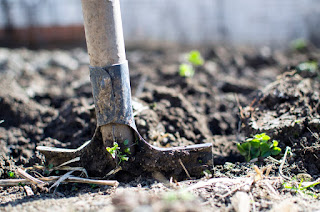Effect of Soil Compaction on Crop Yield
EFFECTS OF SOIL COMPACTION ON CROP YIELD
Soil compaction adversely affects the crop yield by causing soil erosion and soil degradation, thereby decreasing the soil fertility. Soil compaction can result in a decrease in water uptake by the crops, reduction in crop nutrient uptake also reduce crop emergence and root penetration. All of which reduce the crop yields.
How soil compaction is caused?
Soil compaction is mainly caused by tillage equipment used during soil cultivation or by the heavy weight of the field equipment. Soil compression leads to the soil in the formation of particles of small volumes. As these particles are compacted together, the space between the soil particles decreases, thereby decreasing the space for air and water. Soil compaction can lead to a number of adverse effects on soil quality and crop production.
Adverse effects of soil compaction on soil fertility and crop yield.
v Resulting smaller pore spaces between soil particles
v Decrease in water infiltration rate into soil
v Decrease in the rate of water penetration into soil root zone and subsoil.
v Increase in surface water ponding, water runoff, soil erosion and surface soil water lodging.
v Reduction in soil quality to hold water and air, which are the basic requirement for plant root growth and function.
v Crushing of soil aggregates due to compaction force.
v Soil crushing resulting in decreased crop emergence.
v Decrease in the ability of the crops to take up plant nutrients, minerals and water from the soil due to a restriction of crop root exploration.
All of the above factors result in crop stress and yield loss.
Importance of soil porosity: Soil consists of various-sized soil particles, organic matter and pore spaces that contain water and air. Soil pores are very important for water infiltration, nutrient movement within the soil and water holding a capacity of the soil. Larger and interconnected soil pores enhance water percolation into the root zone and subsoil and exchange with the atmosphere. The biological and chemical processes occurring in the soil pores require both water and air. Reduction in the pore size affects these processes adversely, for example, reduction in nutrient cycling.
Change in the pore size is quantified by measuring the soil bulk density. A soil core is taken and measured for the length and diameter of the soil particle to measure the soil bulk density and then oven drying is done to the core to determine the soil dry weight. Soil bulk density is the ratio of dry weight of the soil by volume of the soil. It is usually expressed in grams per cubic centimeter.
Large pores are most effective in moving water through the soil. When large pores are absent, there will be a reduction in the hydraulic conductivity of the soil. In addition, there will also be a reduction in gas exchange with the atmosphere in the compacted soil, which results in aeration related problems. Soil compaction makes the soil stronger which means pressure on the plant roots for penetration in the compacted layer.




Comments
Post a Comment